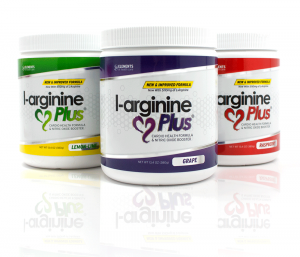If you have anxiety or depression, working out may help improve your health. Find out how exercise helps with stress, helps the heart, and more.
According to a recent study, those with anxiety or depression can benefit from consistent exercise more than those who don’t have these conditions. The researchers explain that since physical activity helps activate parts of the brain that combat stress, exercise can really benefit you if you have anxiety or depression.
The Study
 Researchers found that, on average, those who exercise at least 150 minutes per week may decrease their risk of a major cardiovascular event by 17%. However, while people without anxiety or depression had a 10% risk reduction, those with these conditions had a 22% risk reduction.
Researchers found that, on average, those who exercise at least 150 minutes per week may decrease their risk of a major cardiovascular event by 17%. However, while people without anxiety or depression had a 10% risk reduction, those with these conditions had a 22% risk reduction.
“The effect of physical activity on the brain’s stress response may be particularly relevant in those with stress-related psychiatric conditions,” says researcher Dr. Hadil Zureigat, a postdoctoral clinical research fellow at Massachusetts General Hospital in Boston. “This is not to suggest that exercise is only effective in those with depression or anxiety, but we found that these patients seem to derive a greater cardiovascular benefit from physical activity.”
According to previous research, exercise may help by keeping the brain’s stress response in check, which benefits cardiovascular health. Since people with anxiety or depression have a higher stress-related neural activity and risk of heart disease, regular exercise can provide many benefits.
Stress and the Heart
Stress can increase inflammation, which raises blood pressure and lowers “good” HDL cholesterol. Moreover, chronic stress can lead to unhealthy lifestyle habits like not sleeping enough, eating junk food, and not exercising.
“When one thinks about physical activity decreasing cardiovascular risk, one doesn’t usually think of the brain,” says Zureigat. “Our research emphasizes the importance of the stress-related neural mechanisms by which physical activity acts to reduce cardiovascular risk.”
Since the rates of anxiety and depression have increased during the COVID-19 pandemic, it’s important to keep these conditions in check. “Any amount of exercise is helpful, particularly for those with depression or anxiety,” notes Zureigat. “Not only will physical activity help them feel better, but they will also potently reduce their risk of cardiovascular disease. It can be hard to make the transition, but once achieved, physical activity allows those with these common chronic stress-related psychiatric conditions to hit two birds with one stone.”
The Outlook
 Everyone can benefit from regular physical activity, but this study suggests that people with anxiety or depression can particularly benefit from exercise. Make it a goal to work out for at least 150 minutes per week and by finding ways to be active throughout the day.
Everyone can benefit from regular physical activity, but this study suggests that people with anxiety or depression can particularly benefit from exercise. Make it a goal to work out for at least 150 minutes per week and by finding ways to be active throughout the day.
In addition to exercise, you can give your heart health a boost by taking supplements like L-arginine Plus. Its ingredients effectively promote circulation, blood pressure, cholesterol, and more. Give your health the support it deserves by working out and taking L-arginine Plus.

